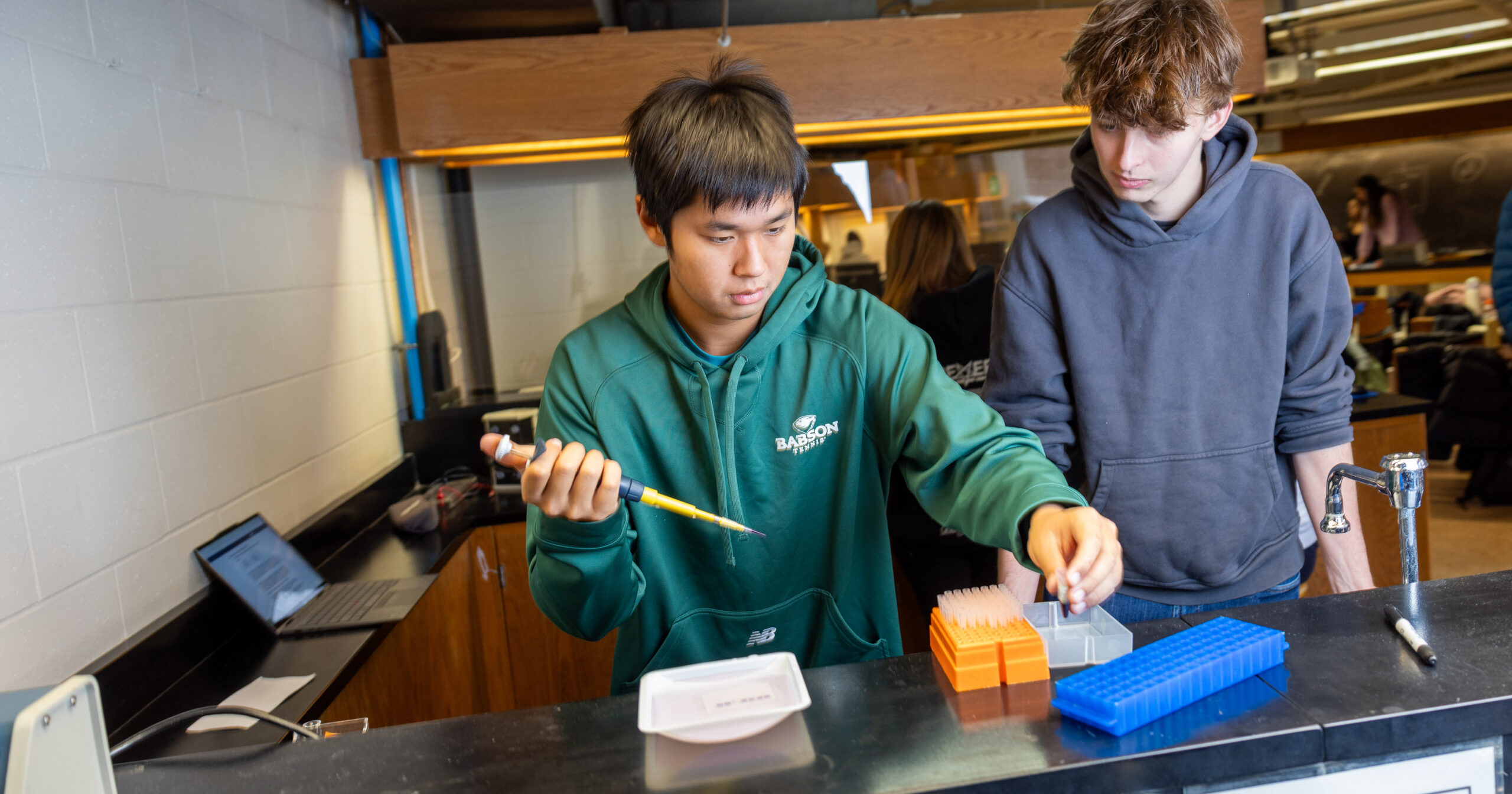In Photos: Teaching Entrepreneurship in Tanzania
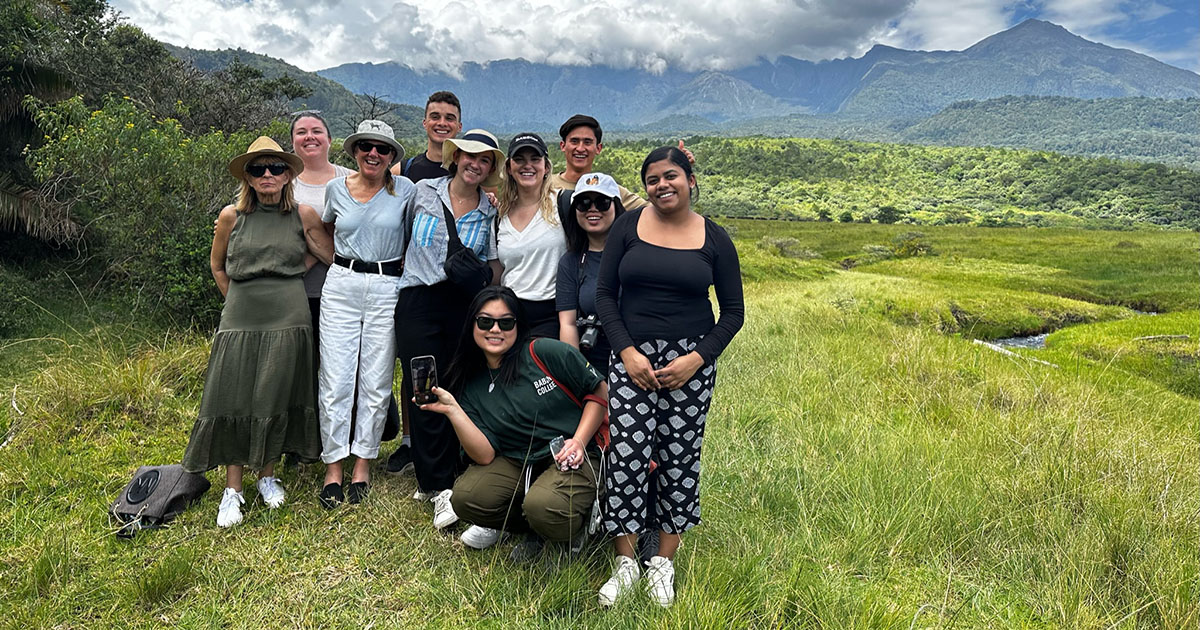
More than a dozen Babson students, alumni, and faculty arrived in Tanzania on December 31 to teach the College’s patented Entrepreneurial Thought & Action® (ET&A™) methodology to 120 students and teachers living in and around Karatu, Tanzania.
They spent their winter break—and celebrated the New Year—under African skies as part of Babson’s Youth Entrepreneurship Program (BYEP) offered through The Institute for Social Innovation. Volunteers from the Babson community, led by the Institute’s Director of Social Impact and Sustainability Lisa Hellmuth Thomas P’18 ’21 ’25, shared their entrepreneurial know-how and bonded with students who had gathered from 20 schools and more than a dozen communities in the Karatu area.
Babson students and alumni on the volunteer trip included Natalia Castellanos ’21, Peter Dambrosio ’24, Sabrina Eng ’25, Kunru Li ’25, Mirela Kuleva ’23, Levi Lowney ’24, Bidhi Mandal ’24, Daniel Salinas ’25, Chloe Samaha ’25, Sam Saville MSEL’20, and Colby Thomson ’23.
Michelle Smith, head coach of the College’s women’s lacrosse team, and Babson Associate Professor of Information Management PJ Guinan P’17 ’22 also helped to lead the trip.
The group came equipped with cameras provided by Canon to document the multifaceted, service-centered 10-day program. Students shared some of their photos and reflections here.
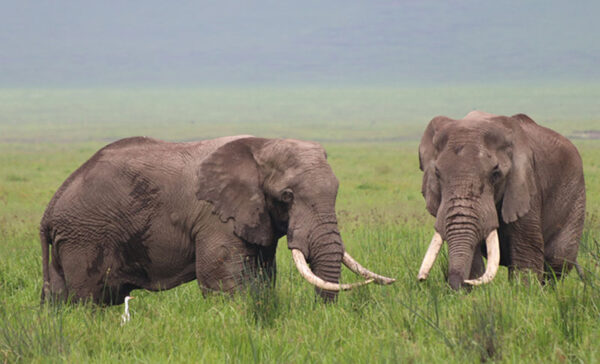
Starting on Safari
“We were fortunate enough to start and end the trip with some exciting safaris,” Mandal said, noting the group spotted elephants, giraffe, and herds of water buffalo.

“It helped us bond with each other and learn about the tourism industry in Tanzania. Experiencing something that Tanzanians take pride in was really special.”
For Lowney, the trip was a return home. The mission of this BYEP—to expand entrepreneurship education in Tanzania—was largely why he attended Babson.
“One of the primary reasons I came to Babson at all was a recognition of the need for entrepreneurship education in Tanzania,” Lowney said. “I’ve articulated it this way to many: ‘I want to learn entrepreneurship, so that I can do and teach.’ I found out about the BYEP during my application process and was astounded to find a program that would allow me to practice this very thing in my home country, while still in university.”

Lowney, who has helped organize virtual BYEPs in the past, wanted to thank Thomas in particular: “I can assure you that in all that is to come, you’ve planted seeds which will transform Tanzania for generations.”
Gathering at the Ganako
The BYEP partners with the Ganako School in Karatu, where the local students and their teachers gathered from more than a dozen communities in the surrounding area assembled. The students broke into smaller groups during some of the lessons as Babson volunteers detailed the action-based pillars of ET&A.
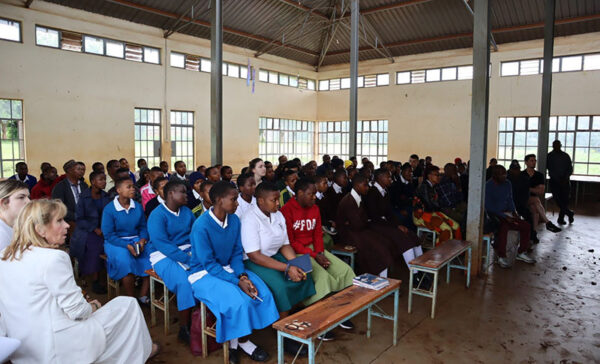
“Even though our big class had more than 120 students, our smaller classes allowed us to really build personal connections with the students,” said Mandal, pictured wearing a Babson T-shirt.
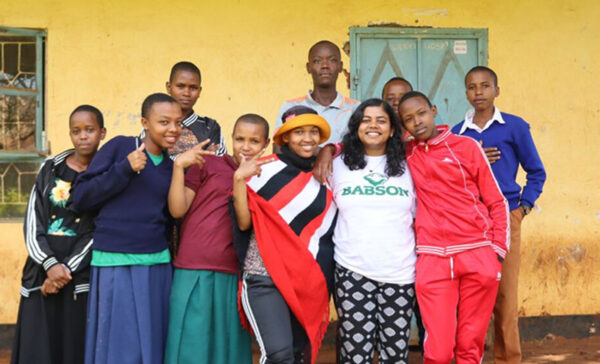
“I personally loved my class and was moved by the passion and eagerness that they brought in the classroom,” Mandal said.
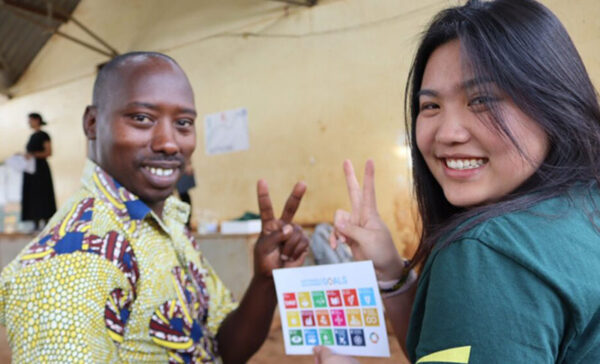
Daily lessons included discussions about the United Nations’ 17 Sustainable Development Goals, a workshop on managerial versus creative thinking, and, of course, seeking solutions for local issues in the community.
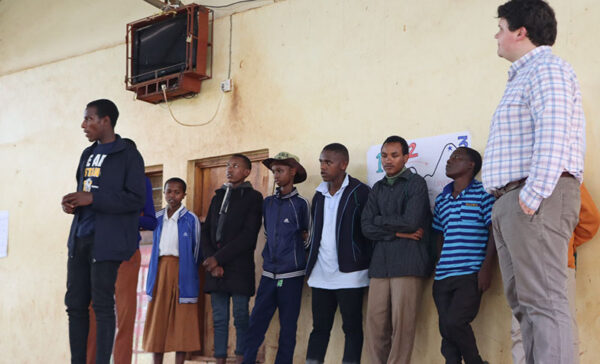
The lessons ended with a competition as local students took part in their own version of Rocket Pitch. Babson’s annual entrepreneurial challenge gives presenters only three minutes to pitch their entrepreneurial endeavors.
Capturing Memories
As Babson students taught entrepreneurship and gained insight into local issues, they also gained insight into themselves.
“My time in Africa was truly unforgettable,” Samaha, pictured below, wrote about the experience. “We delved into identifying community problems and crafting innovative solutions, empowering students to engage in the power of entrepreneurship.”
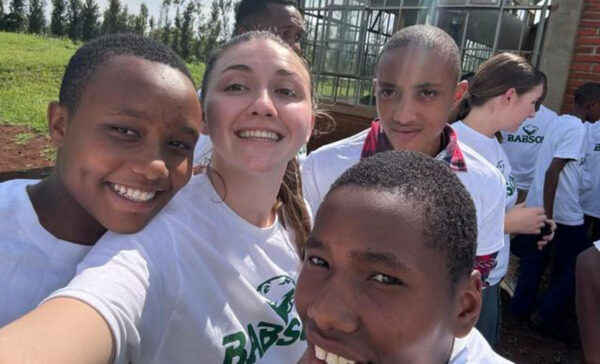
Service immersion programs like BYEP were created to provide a sense of civic engagement and help students develop their own identities, Thomas said.
A new fund, named the Social Innovation Fund (SIF), was recently launched to support Babson students who wouldn’t otherwise have access to these types of transformational learning experiences. The SIF funded two students and one administrator for the trip to Tanzania.
The fund was made possible thanks to KP Balaraj P’25. The KPB Investments Board was inspired by the opportunity for scalable impact on catalyzing entrepreneurial leaders to better contribute to business and society. Interested students will be able to apply for funding starting March 1 through the Institute for Social Innovation’s website.
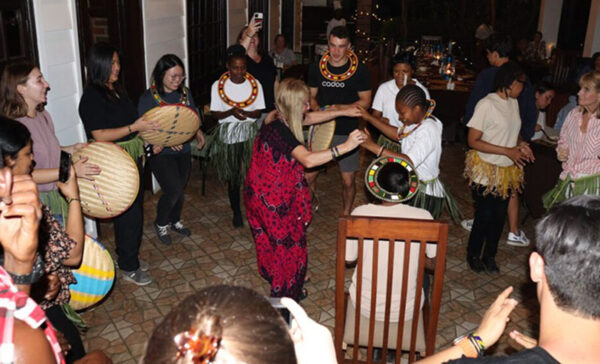
“We had many cultural immersion opportunities,” Mandal wrote. “We celebrated our new year with the hotel staff and the very famous Maasai community. We had some amazing food and a very long dance party.”
Babson students, alumni, and faculty ended the trip with a celebration dinner, where they could reflect on the 10-day experience.
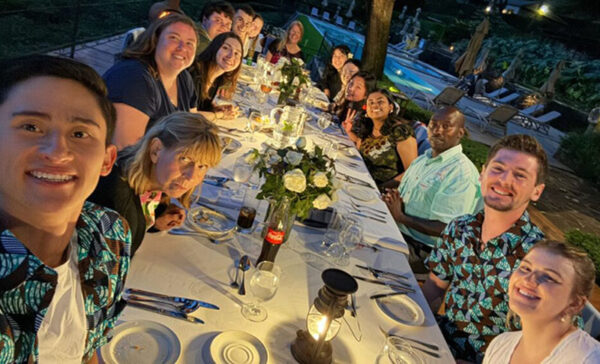
“Although we were there to teach entrepreneurship, the students taught us all so much each and every day,” said Babson alumna Colby Thomson ’23. “Every student I had the privilege of talking with was beyond inspiring and dedicated to making a positive impact within their communities.”
Posted in Community



